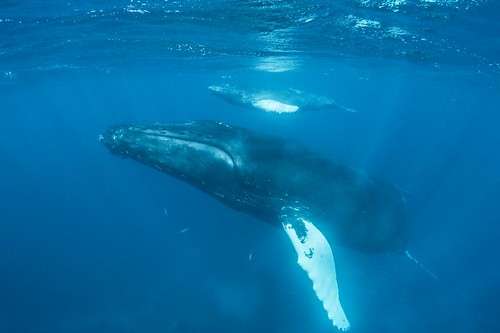Welcome to Word Buzz Wednesday, in which we round up our favorite buzzworthy words of the week. In this batch: revealing punctuation, the color of that damned dress, and a whale that’s not a fail.
black site
“It brings to mind the interrogation facilities they use in the Middle East. The CIA calls them black sites. It’s a domestic black site. When you go in, no one knows what’s happened to you.”
Spencer Ackerman, “The disappeared: Chicago police detain Americans at abuse-laden ‘black site,’” The Guardian, February 24, 2015
The black sites run by the CIA are essentially secret prisons, “generally outside of U.S. territory and legal jurisdiction,” and “used by the U.S. government in its War on Terror.” In 2006, George W. Bush acknowledged the existence of black sites.
The “domestic” black site referred to in The Guardian article is an “off-the-books interrogation compound” run by the Chicago police department. Americans brought inside the “nondescript warehouse” are rendered unfindable by family or attorneys.
micro-punctuation
“But it’s also as if a kind of micro-punctuation has emerged: tiny marks in the smallest of spaces that suddenly tell us more about the person on the other end than the words themselves (or, at least, we think they do).”
Jessica Bennett, “When Your Punctuation Says It All (!),” The New York Times, February 27, 2015
Micro-punctuation refers to punctuation used in tiny digital spaces, such as text messages, tweets, etc., rendered even more meaningful and revealing because of the limited amount of space. For instance, a text ending with a period instead of an exclamation point might prompt the reply: “U mad bro?”
Micro-punctuation might be influenced by microexpression, a fleeting and involuntary facial expression that’s supposed to expose true thoughts and emotions. Some argue that certain microexpressions reveal when someone is lying.
Purkinje effect
“At first the dress debacle seemed like it would never be explained, but something called the Purkinje effect may help shed some light on what’s driving the difference of opinion over what color the dress is.”
Connor Sheets, “What color is this dress? The ‘Purkinje effect’ may explain white & gold vs. black & blue debate,” AL.com, February 26, 2015
The Purkinje effect basically says that in low light our eyes shift toward the blue end of the spectrum. In other words, in some light levels, the dress in question looks blue and black, and in others it looks white and gold.
The Purkinje effect is named for Czech anatomist and physiologist Jan Evangelista Purkyně.
Slurpee surf
“After months of deep freeze, Massachusetts photographer Jonathan Nimerfroh captured the chilling beauty when the ocean waves turned to slush. Nimerfroh calls the shot a ‘Slurpee surf.’”
Chuck Hickey, “Photographer captures ‘Slurpee surf’ from Massachusetts shoreline,” CW2, February 27, 2015
Slurpee surf is a nickname a Massachusetts photographer Jonathan Nimerfroh gave slushy waves he saw hitting the Nantucket shoreline. (If waves crash on a shore and they’re half-frozen, do they make a sound? No.)
While the Slurpee is the 7-Eleven brand name of a frozen fruit-flavored drink, a slushy or slushie is the generic name.
whale fall
“A whale fall is the dead body of a single, giant organism. In the darkest depths, it too hosts a thriving ecosystem.”
Deb Chachra, “Zombie Bone-Eating, Harem-Keeping Worms,” Primer Stories, February 2015
A whale fall (not to be confused with the fail whale) is “a whale carcass that has fallen to the seafloor,” and at depths of over 6,000 feet, can “create complex localized ecosystems that supply sustenance to deep-sea organisms for decades.”
Some deep-sea creatures sustained by whale falls are hagfish, which burrow “face-first into dead flesh”; sleeper sharks; and annelid worms.
[Photo via Flickr, “Humpback Whales,” CC BY 2.0 by Christopher Michel]
